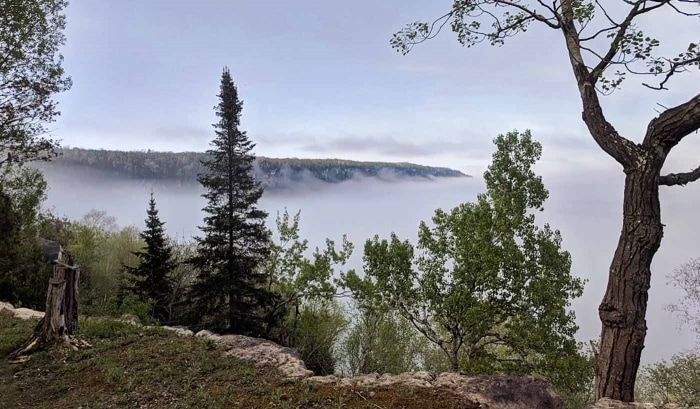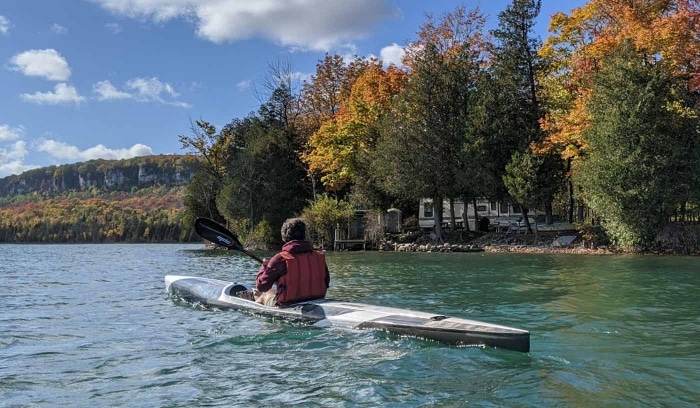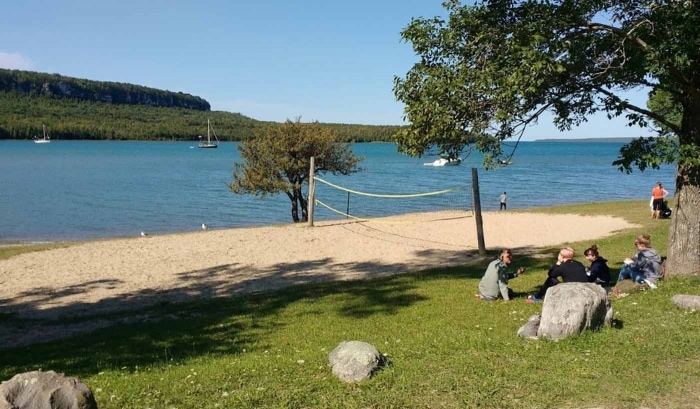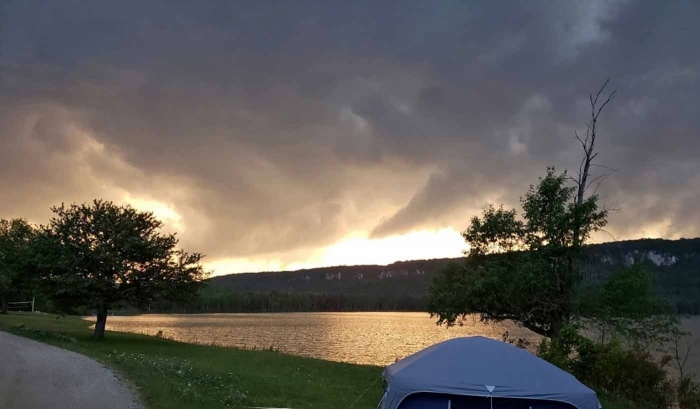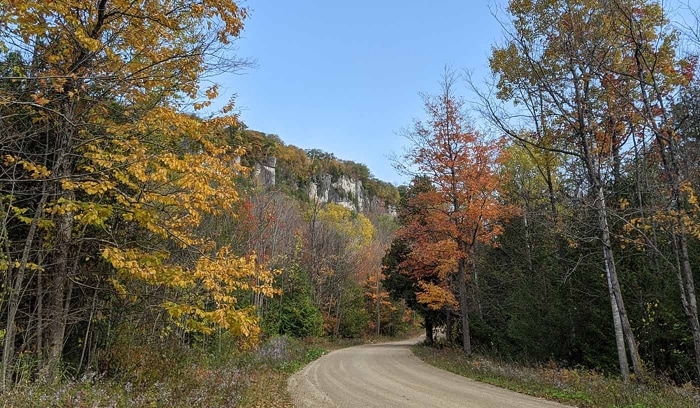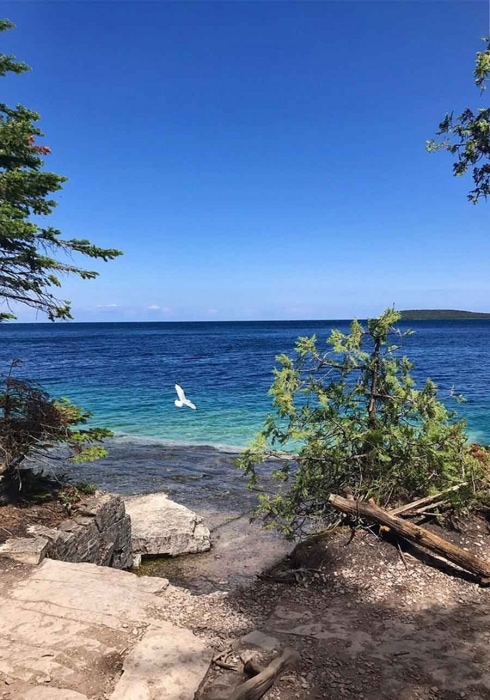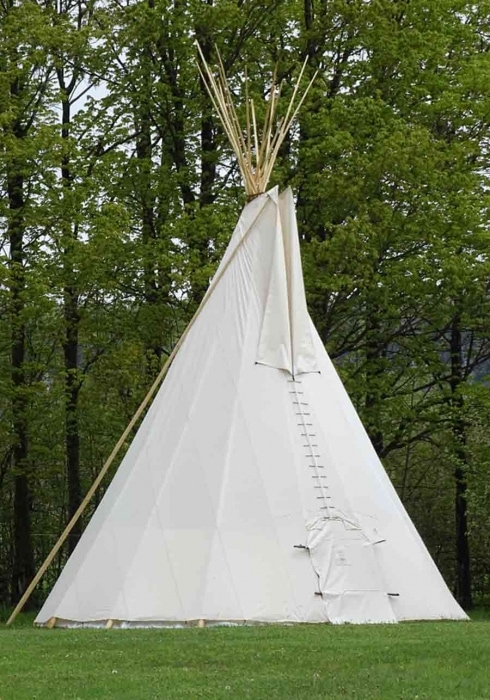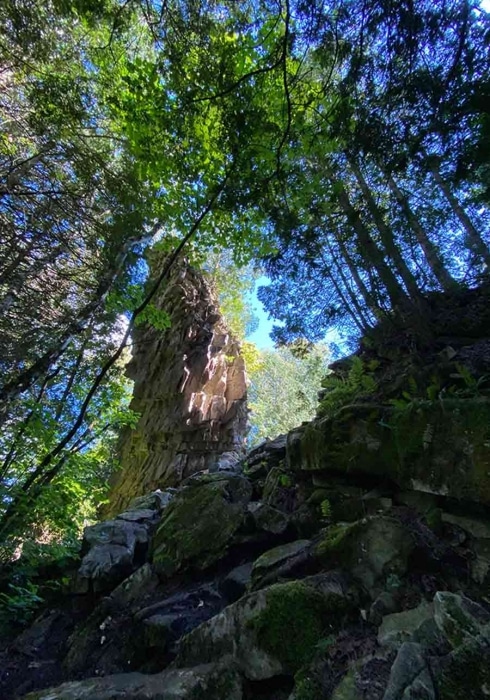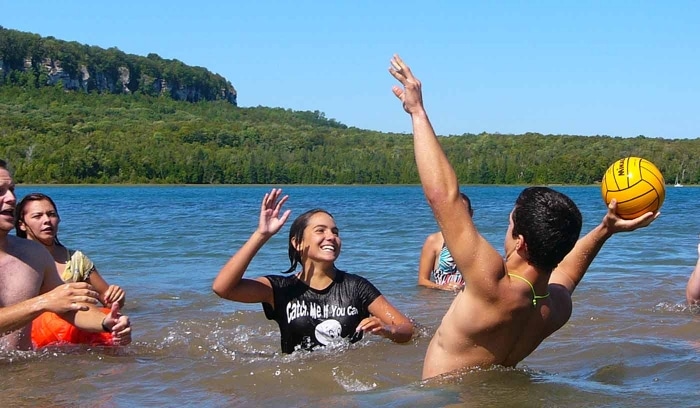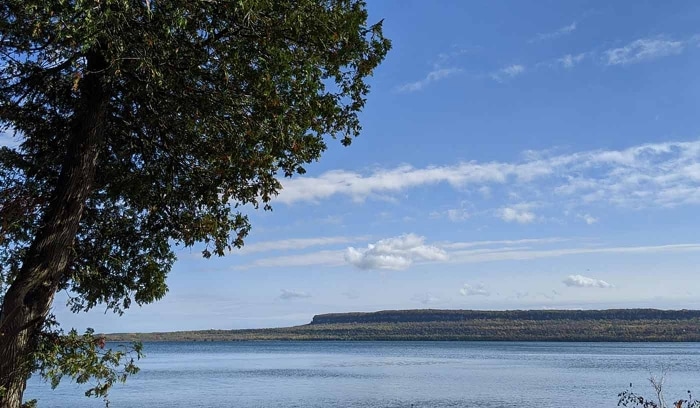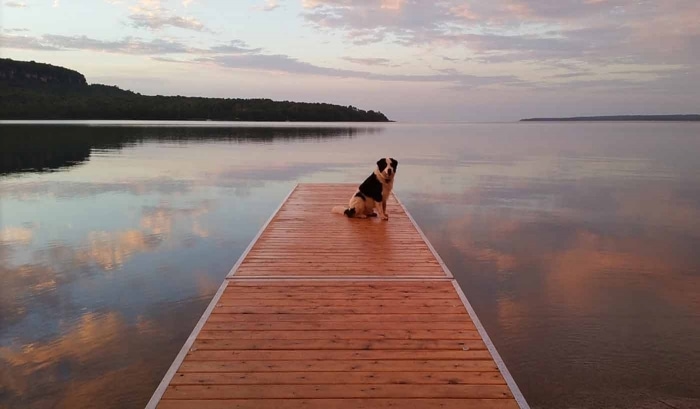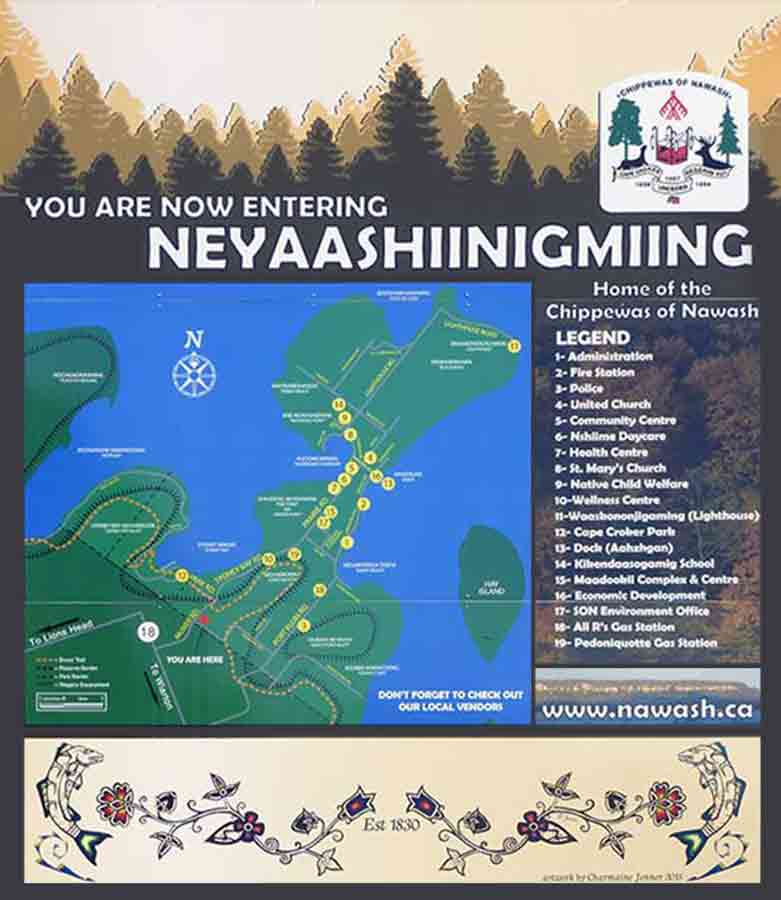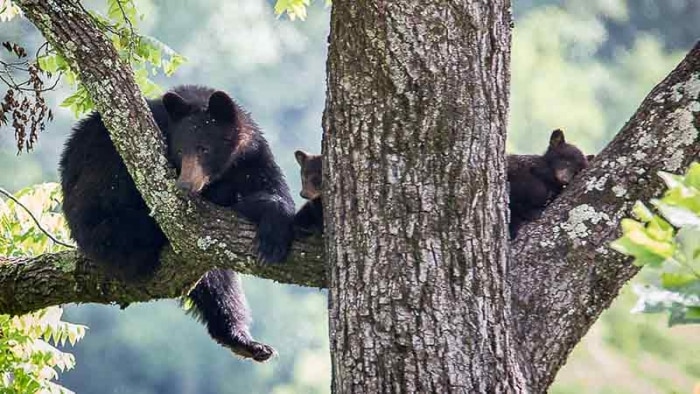A large beautiful sign greets you at the Boundary Road – You are now entering Neyaashiinigmiing, Home of the Chippewas of Nawash. To help orientate you, there is a map of our community with key locations. The rocky edge of the Niagara Escarpment and the Bruce Trail are indicated. A yellow ball with the number 12 shows you where Cape Croker Park is located.
In the upper right hand corner of the sign, you will see our nation’s emblem. There is a Red Thunderbird, trees, animals, fish, pipe, drum, feathers and strawberries. Every image on that emblem represents an aspect of our nationhood.
There is a scrolling banner at the bottom of the emblem. This banner is surrounded by the dates of three major Treaties: 1836, 1854 and 1857.
The banner also includes the word UNCEDED. This word applies to 1854 – Treaty No. 72 – the Saugeen Peninsula.
The first treaty, Treaty 45½, promised to protect “for ever” our lands from “the encroachment of the whites.” Eighteen (18) years later, that promise was broken with Treaty No. 72. We were then told that if we surrendered the Saugeen Peninsula that we would be able to “ride in carriages and roll in wealth.”
During the negotiations, our people reserved "to ourselves" various areas of land, including "all that tract of land called Cape Croker... all which reserves we hereby retain to ourselves and our children in perpetuity."
Neyaashiinigmiing (our name for Cape Croker), Saugeen Reserve and Chief’s Point are all that remain with us. Between 1857 and 1899, Owen Sound, 6000 acres in the Colpoy’s area and all the islands around the Peninsula, we lost to treaties.
Unceded means that the Chippewas of Nawash First Nation never ceded or legally signed away Neyaashiinigmiing to the British Crown or Canada. The lands that were “ceded” became part of Canada.
When you visit Cape Croker Park, you are technically stepping outside of Canada.
Learn more about our nation's history
Check our new Cultural Programming to learn more about our natural and cultural history.



